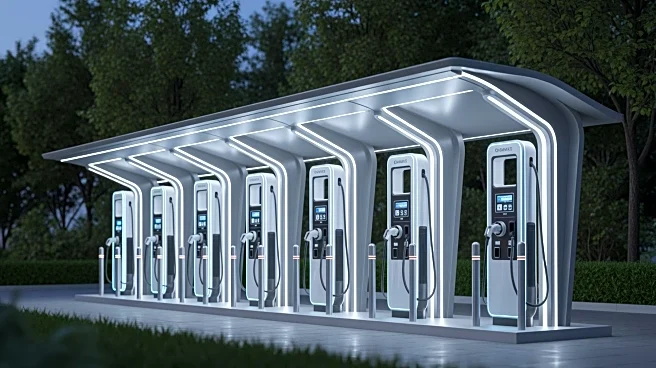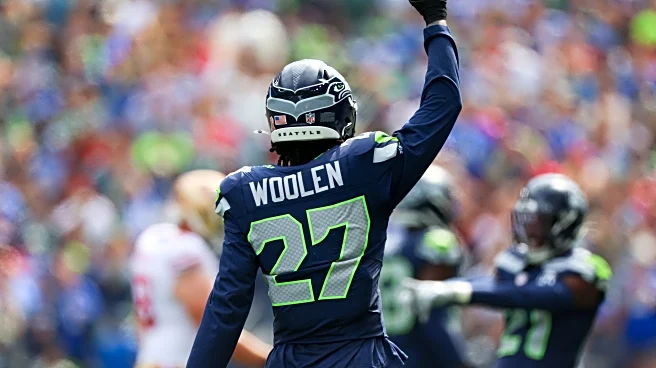What's Happening?
Tesla CEO Elon Musk has announced that the production of the company's autonomous Cybercab will commence in April 2026. This vehicle is designed specifically for unsupervised self-driving, featuring a clean-slate
design without a steering wheel, pedals, or side mirrors. The Cybercab will be produced at Giga Texas and is set to be Tesla's flagship entry into the commercial robotaxi market. Musk emphasized the vehicle's production process, which is modeled more on consumer electronics assembly than traditional automotive manufacturing, allowing for a production cycle time of less than 10 seconds per unit.
Why It's Important?
The introduction of the Cybercab represents a significant step in Tesla's strategy to dominate the autonomous vehicle market. By optimizing production for high output and low cost per mile, Tesla aims to revolutionize the commercial transportation sector. This move could potentially disrupt traditional taxi services and impact the broader automotive industry by setting new standards for vehicle manufacturing and autonomous technology. The success of the Cybercab could also accelerate the adoption of autonomous vehicles, influencing public policy and urban planning.
What's Next?
As production begins, Tesla will likely face scrutiny from regulatory bodies regarding the safety and reliability of fully autonomous vehicles. The company may also encounter challenges in scaling production to meet its ambitious targets. Stakeholders, including investors and competitors, will be closely monitoring Tesla's progress and market response to the Cybercab. Additionally, the development may prompt other automotive manufacturers to accelerate their own autonomous vehicle projects.










